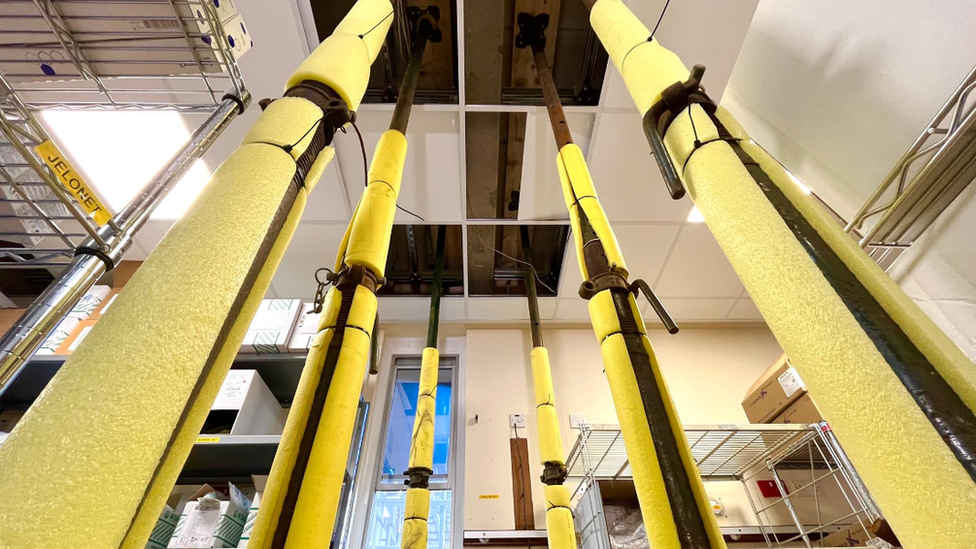'Our baby unit was so small I had to wear ear plugs'
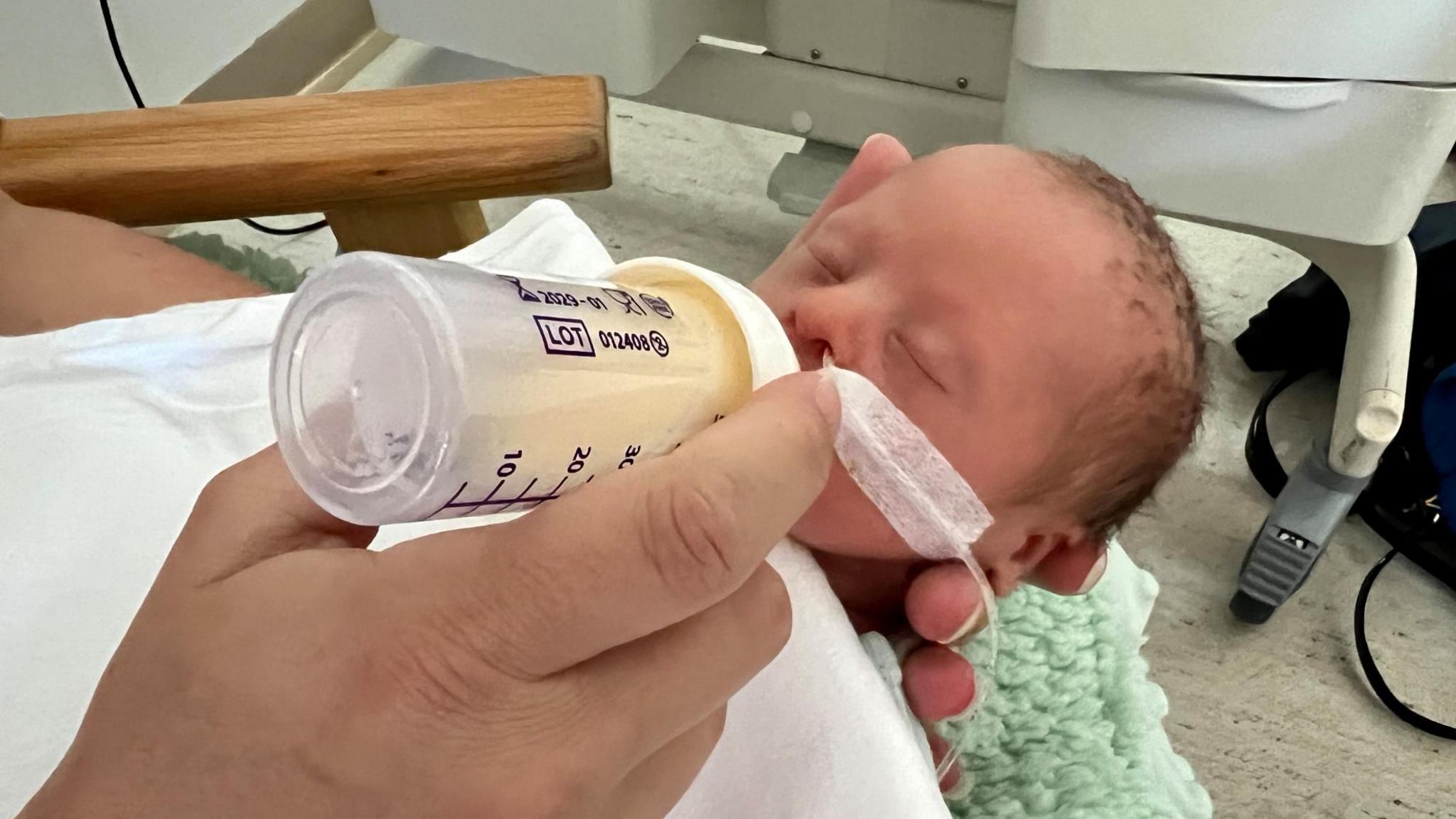
The new women's and children's hospital for Milton Keynes could be delayed after the government said projects like it needed a "realistic timetable"
- Published
When Khilna Trivedi's baby Nandi was treated in the neonatal intensive care unit at Milton Keynes Hospital, the first time mother was asked to wear ear plugs so she did not hear confidential conversations during ward rounds.
Milton Keynes is one of the fastest growing cities in the country, external but the hospital's maternity unit is so small, some expectant mothers are sent to London or Luton to give birth.
But will calls for a review of the national hospital building programme, external impact plans for a brand new women's and children's hospital here by 2030?
'The ward is cramped and dated'
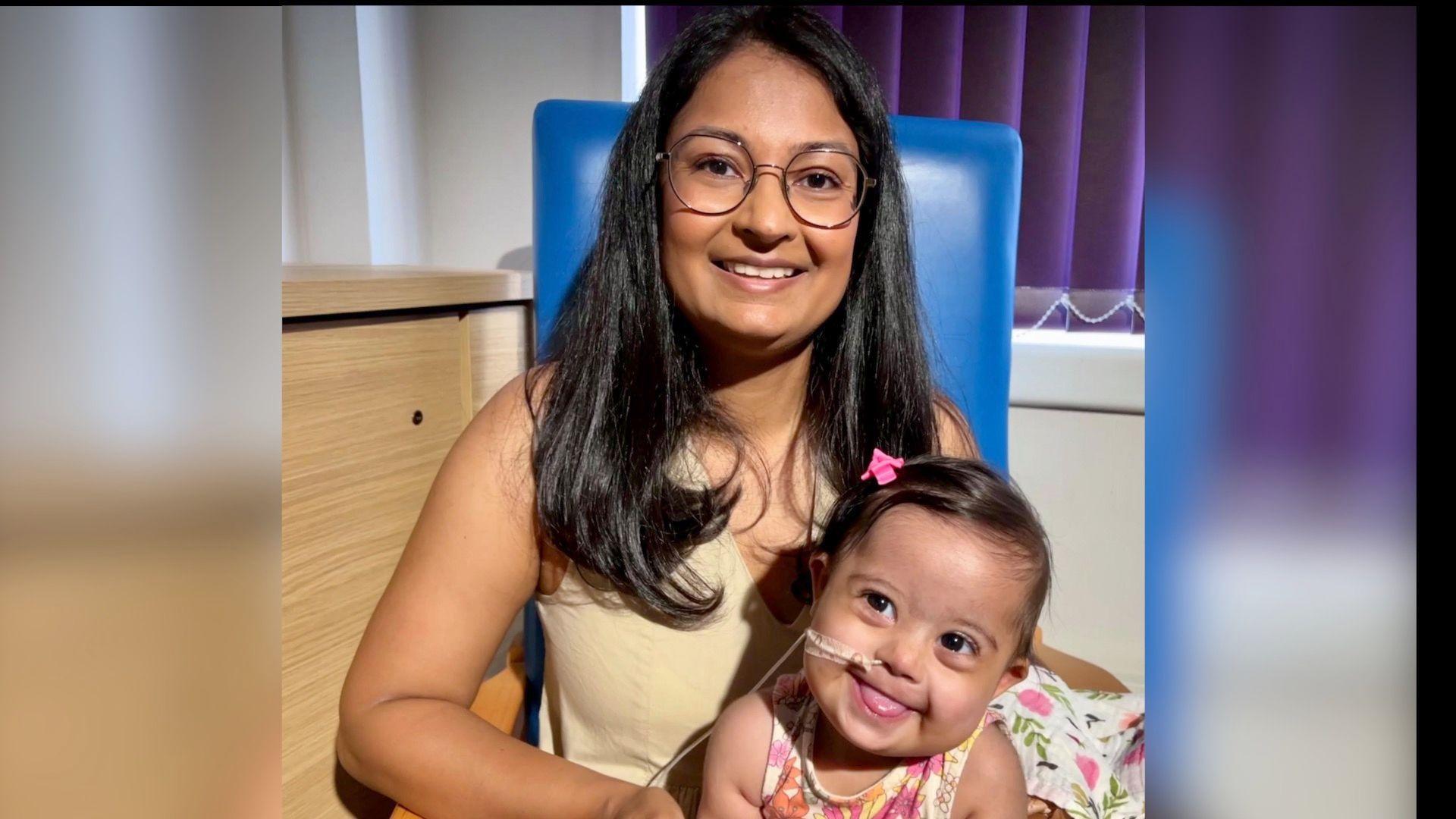
Khilna Trivedi from Milton Keynes says the neonatal intensive care unit is not fit for purpose
Khilna Trivedi said she immediately felt apprehensive when her baby daughter was rushed to the neonatal intensive care unit at Milton Keynes Hospital with heart failure last year.
During a three-month stay, she said she was put at ease by staff, but conditions were "cramped" and "very dated".
"It instantly made us a little nervous about the care Nandi would receive and whether it was as up to date with it's equipment as it could be," she said.
"There isn't the privacy to have those moments that you want, that are special.
"I struggled to show my emotions because you have parents right next to you and you don't know what they're going through. It was tough."
She said that every morning during ward rounds, the cots were in such close proximity that she was expected to wear ear plugs to avoid hearing other private conversations, which was "far from ideal".
"Nandi was quite poorly at the time so I really needed to hear, to check what was going on."
For the first two weeks after Nandi's birth, Ms Trivedi stayed in an on-site bedroom for parents. But there were only three for 17 families, so for the rest of Nandi's stay, she had to travel between home and hospital.
"I was really upset because I couldn't do her feeds," she said.
"The mum guilt I had after that was tremendous. In the new hospital I'm hoping they'll be more rooms."
'The situation is frustrating'
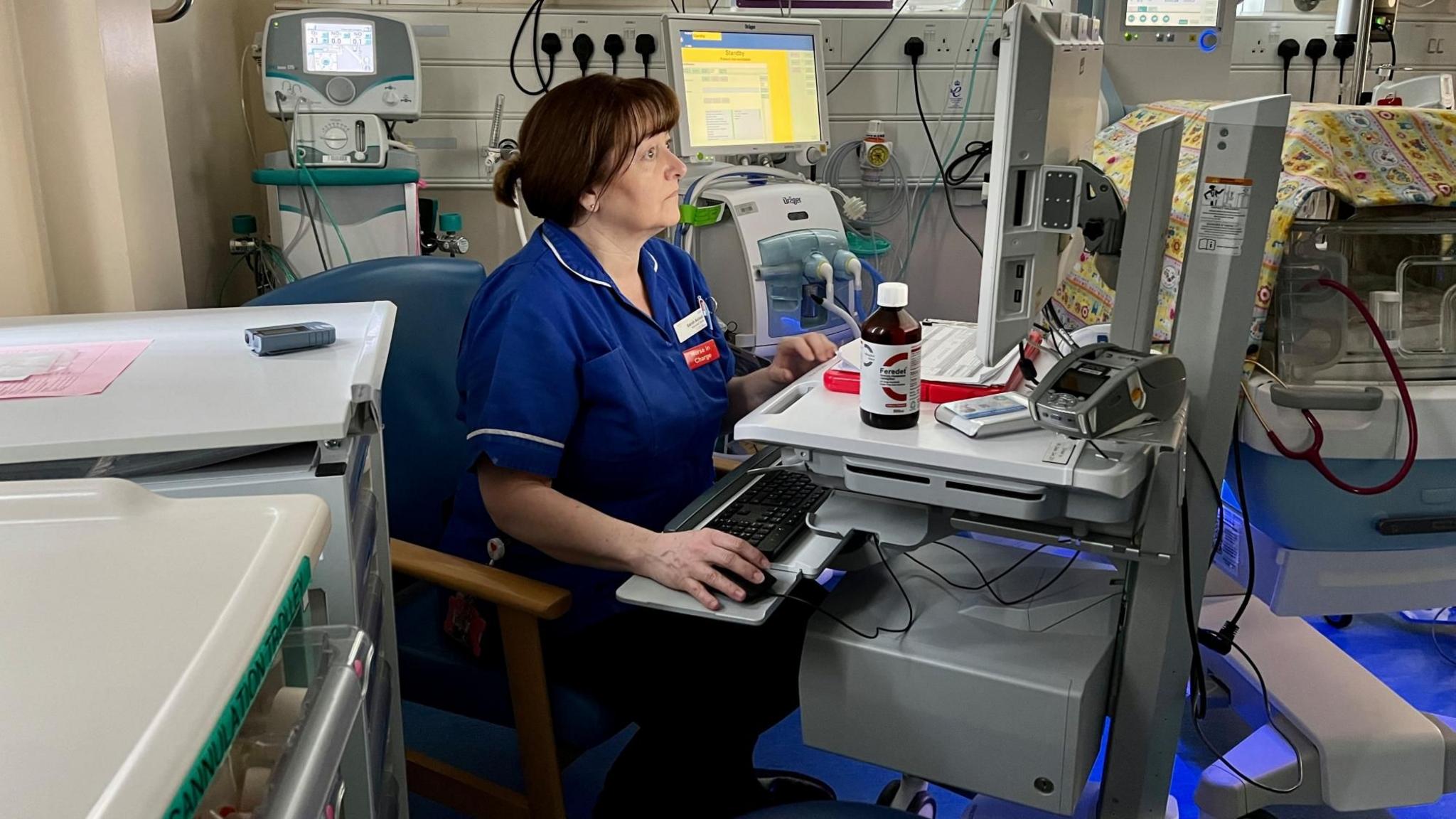
Nurses have little space to work at computers and sometimes have to stand to work
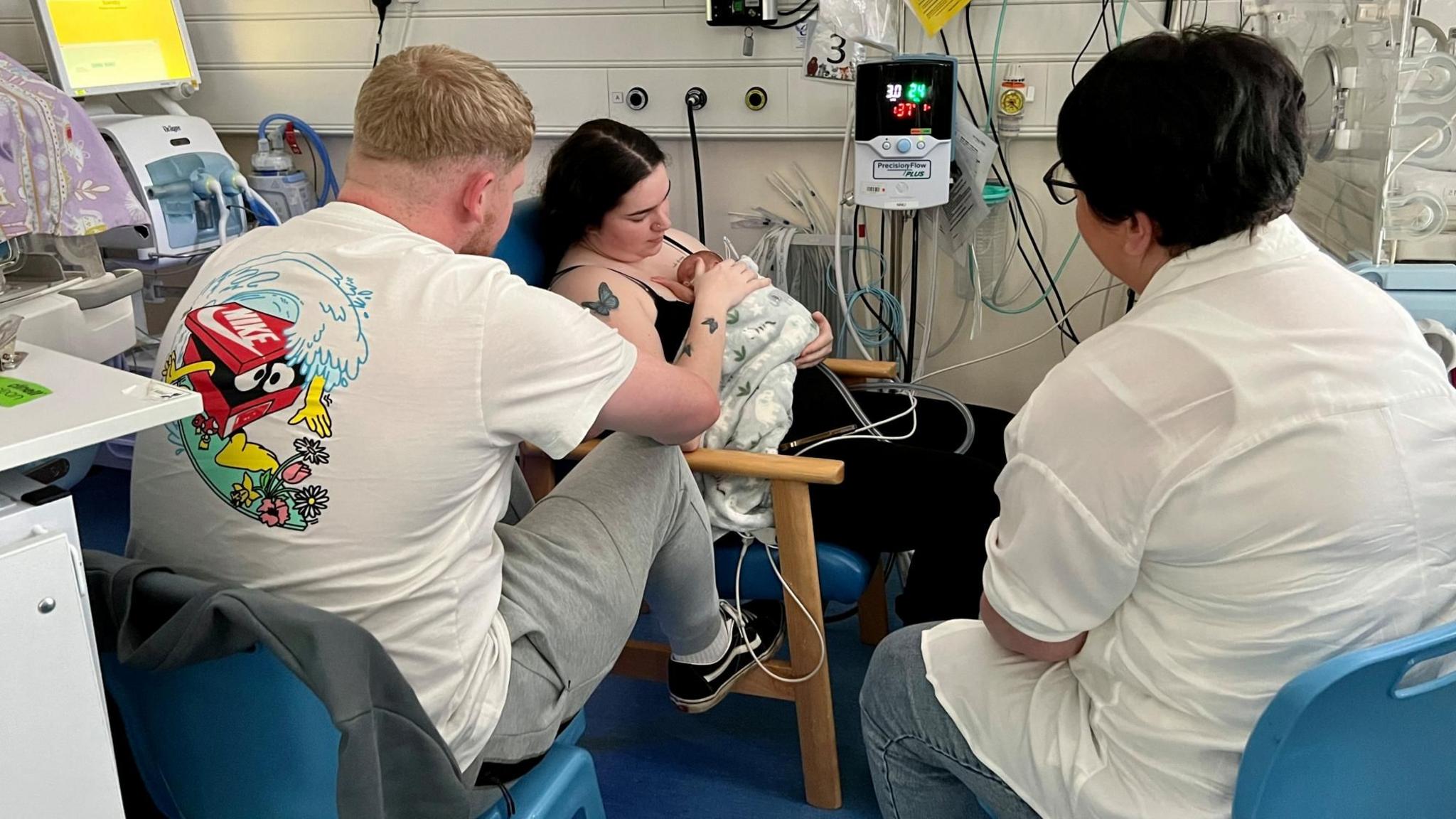
A family squeezes into a tight space for private time while their baby is monitored
In the unit, paint peels off walls decorated by decade-old Hungry Caterpillar transfers.
Families are sandwiched between cots, furniture and busy staff in an ever-growing battle for space.
The family integrated care lead, Diane Gray, describes the situation as "frustrating" and "overcrowded".
"When we reach capacity the babies need to be delivered and cared for in other hospitals," she said.
"Over the last few months, we've had babies delivered in Oxford, Luton, Bedford and in various hospitals all around London.
"I think at one point we had 11 babies in other hospitals that we were trying to get back here from different places."
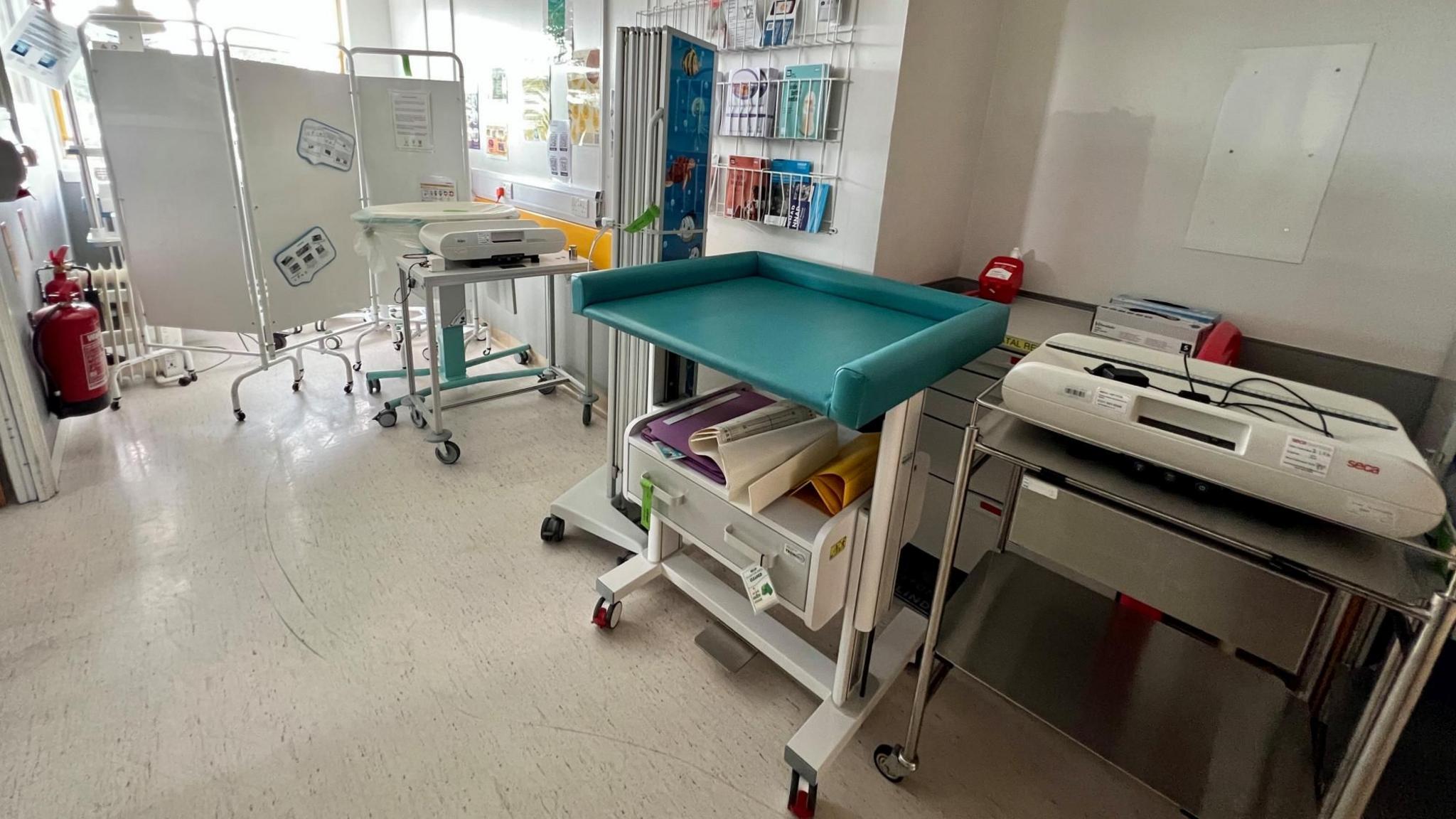
Equipment, families and staff all vie for limited space in the hospital's neonatal unit
'We will run out of space'
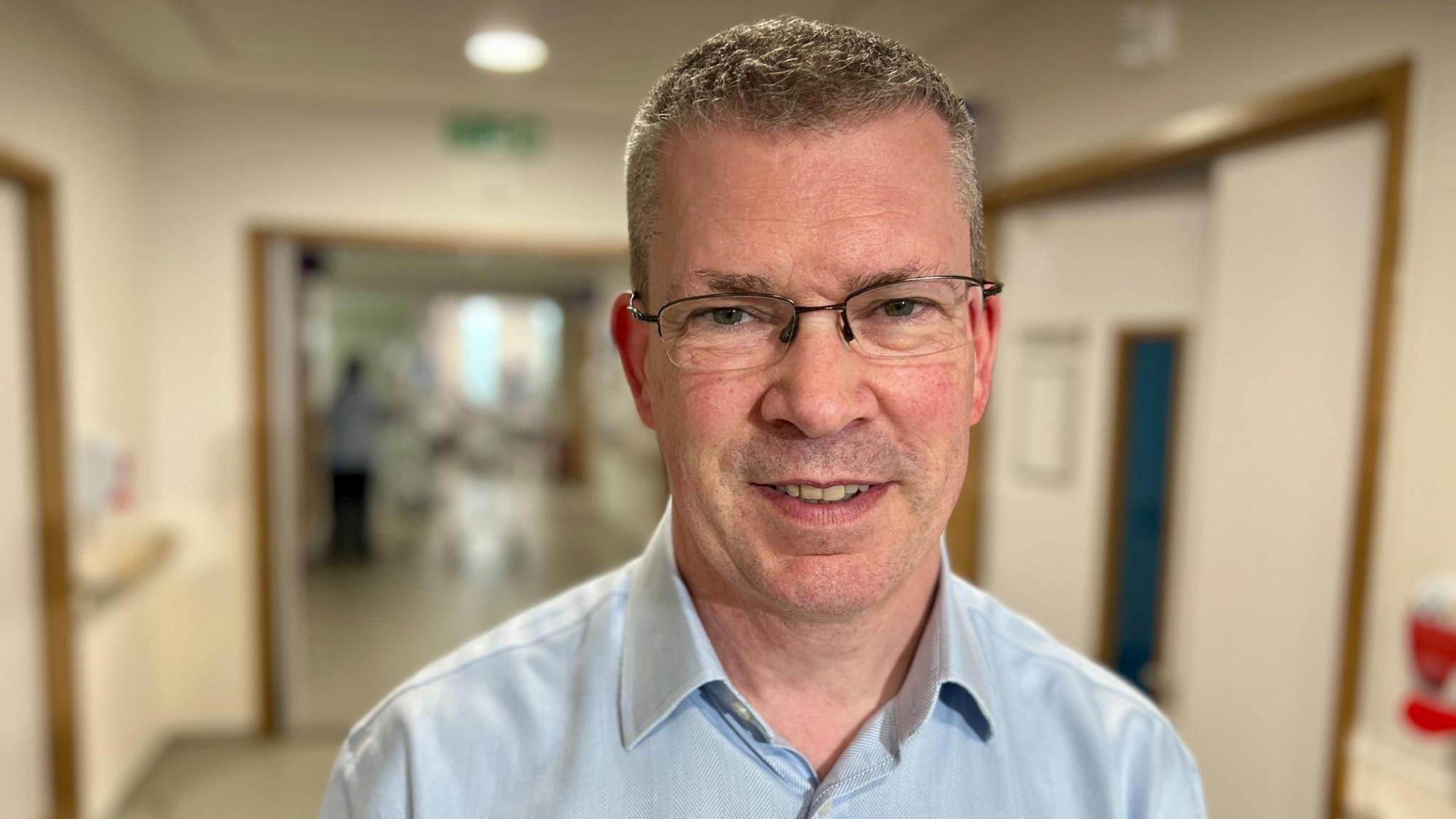
Prof Joe Harrison describes conditions on the labour ward as "extremely poor"
Milton Keynes Hospital chief executive, Prof Joe Harrison, said the planned new women's and children's hospital would add approximately 185 beds, and new maternity and children's departments.
Milton Keynes was the only one of more than 40 new hospitals planned, external across England that had been approved because of population growth.
"The hospital expects the population we serve here to more than double by 2050," Prof Harrison said.
"If we don't continue to expand the facilities, we will run out of space for our patients.
"Given the pace of expansion, its critical that we have the appropriate clinical facilities for the children of Milton Keynes and the mothers who are giving birth in our hospital.
"We cannot keep those people waiting, we have to be ready."
He said he did not want to rely on "already stretched" surrounding hospitals.
'We want to start work by 2025'
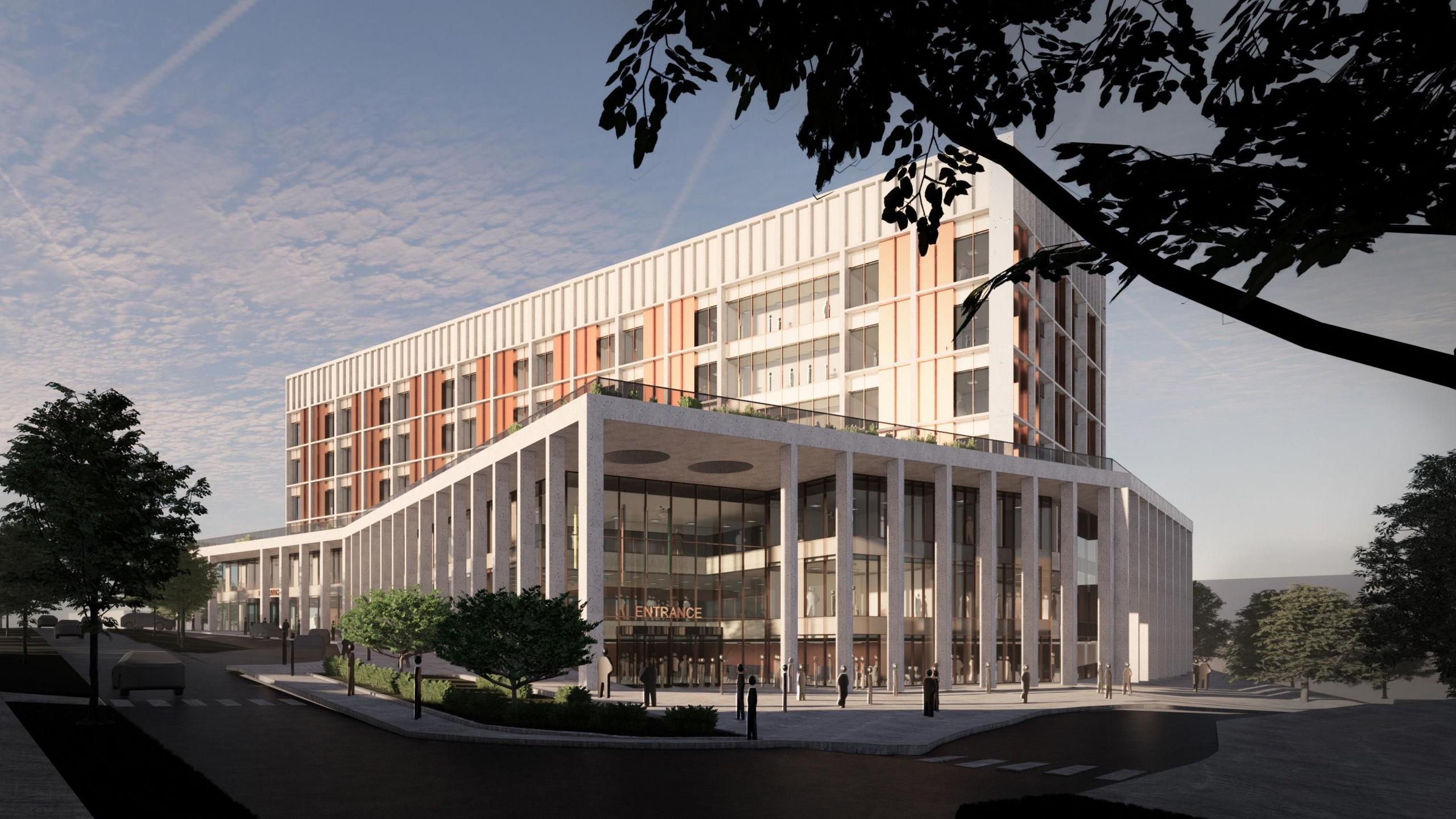
An artist's impression of the planned new women's and children's hospital in Milton Keynes
Money has been released to prepare the site, with electric cabling to be laid and a new car park built in the next 12 months.
But the hospital needs the new government to approve its strategic outline case - which was submitted to the Treasury in January - in order to start work.
"What we are hoping and expecting is that our new government will see exactly the same case that the previous government saw around our growth in population and will continue to support us to build our new hospital," Prof Harrison added.
However, on Tuesday, Health Secretary Wes Streeting ordered a review of the New Hospitals Building Programme, saying the 2030 timescale was "not deliverable".
Prof Harrison said they had hoped to start building work in 2025.
"The sooner we get through the Treasury process and get support from our new government, the sooner we can get on and build the new hospital," he said.
'Larger than Cardiff'
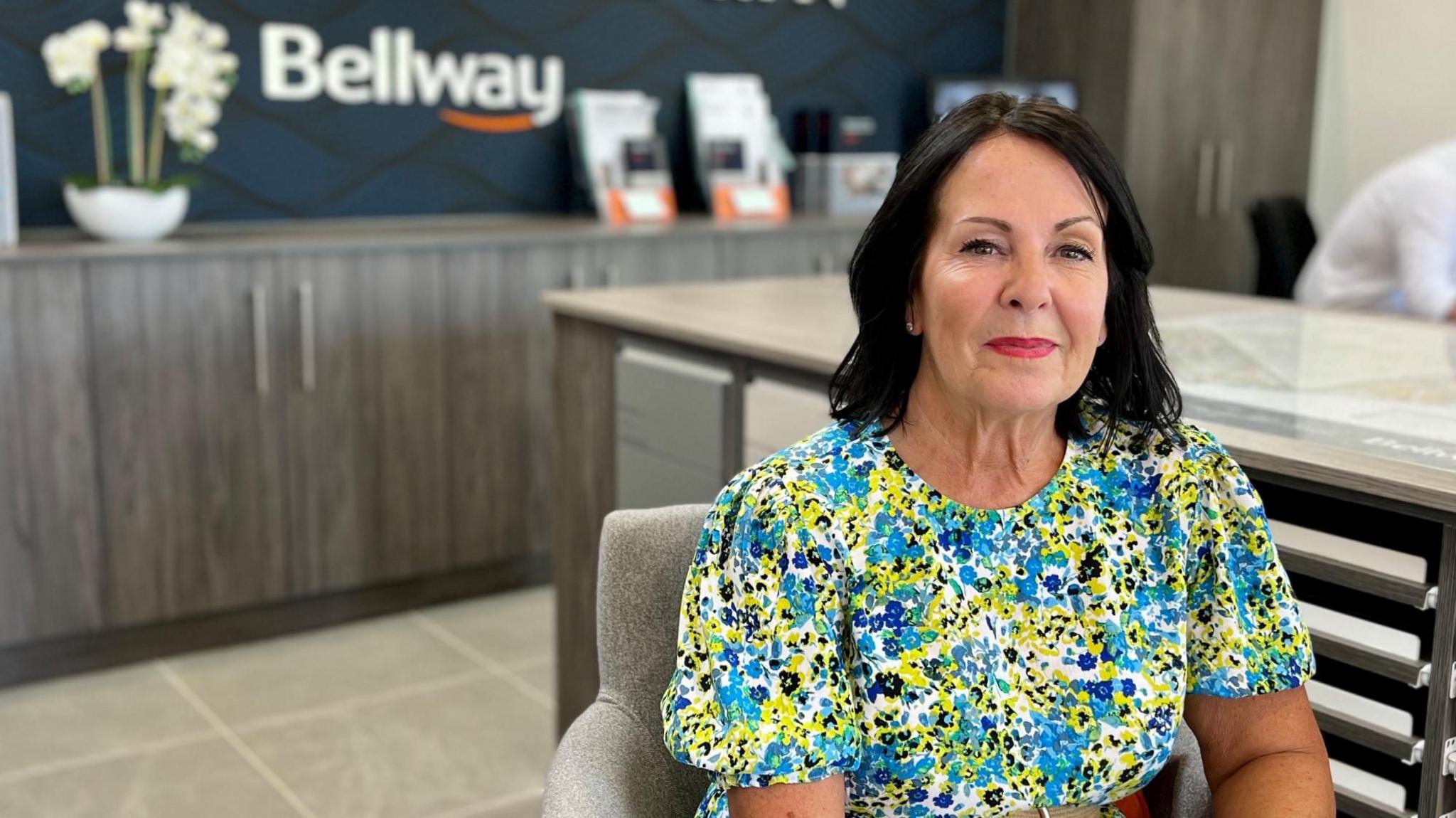
Senior sales manager Lindsey Davenport says on average 11 people move to Milton Keynes every day
The pace of growth in Milton Keynes is fast. The population in the 2021 census, external was 287,100. But the council predicts it will reach 410,000 by 2050, making the city larger than Cardiff.
It says it is looking at "infrastructure first", external to ensure the necessary facilities are provided for its residents as the area grows.
The number of residents per household is higher than the national average - because those moving in are younger.
A number of factors drives the increase, according to Lindsey Davenport, a senior sales manager at property developer, Bellway Homes.
She works on the Whitehouse Development where more than 5,000 new homes are planned.
"We've got 30 schools within the area, all with an Ofsted report of outstanding," she said.
"But the most important thing is the diverse thriving economy."
According to the Milton Keynes city plan, about one in three jobs is in technology or a related business.
Ms Davenport said people from global companies were moving into the city from Hong Kong and Asia.
'Growing hub'
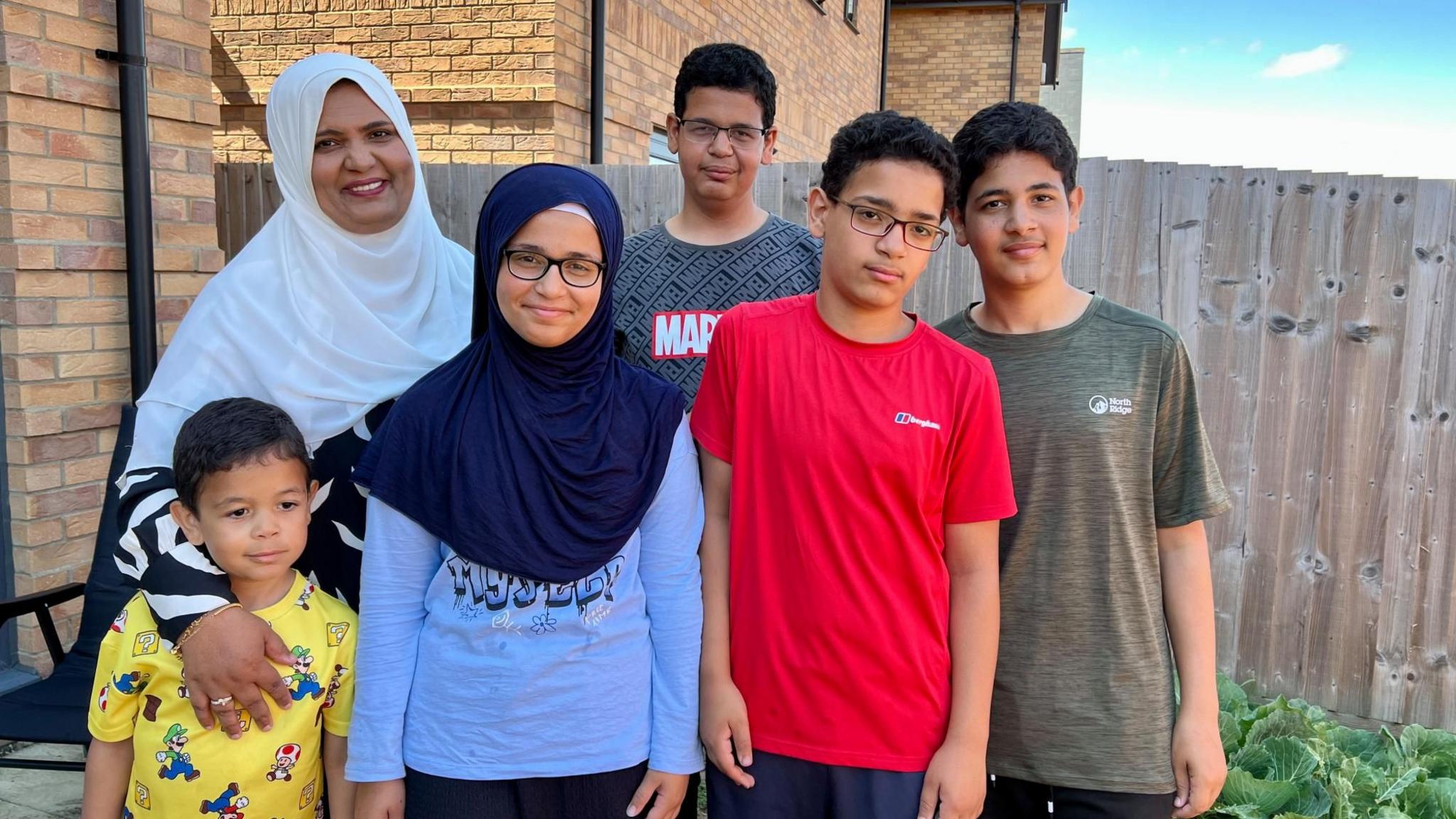
Reham Shaheen hopes her children will benefit from the presence of nearby universities and global companies
Reham Shaheen moved to Milton Keynes from Qatar with her five children last year.
The global translation firm she works for is setting up a new branch and let her chose the base.
"Other people might choose London, I chose Milton Keynes," she said.
"I made a lot of comparisons between other cities. The most important thing is that it is near to London. I travel abroad four times minimum a year and the airports are near.
"The houses on this estate are new and equipped with modern white goods, so this encouraged me to come. Also crime is very low."

Babu Palani commutes to London in 35 minutes
Babu Palani, 48, moved to Milton Keynes from Slough with his partner and two children.
"For my kids, school is important, as well as after-school activities like leisure clubs.
"For my wife, it was about a safe community. There is a new GP very near to us. It's also good for driving because there's not much traffic.
To whomever I talk on the train, people are talking about moving to Milton Keynes, it's a real growing hub."
Get in touch
Do you have a story suggestion for Beds, Herts & Bucks?
Follow Beds, Herts and Bucks news on BBC Sounds, Facebook, external, Instagram, external and X, external.
Related topics
- Published15 March 2024
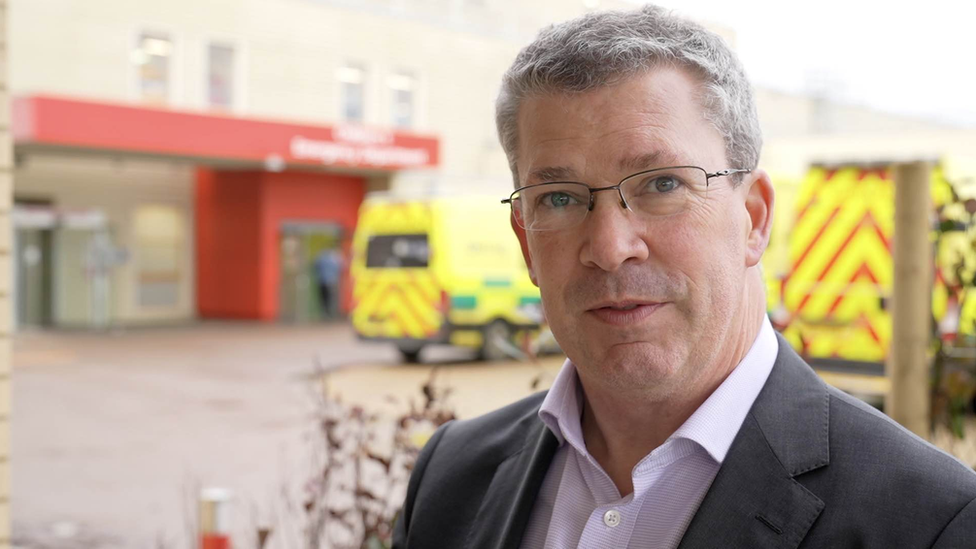
- Published6 January 2023
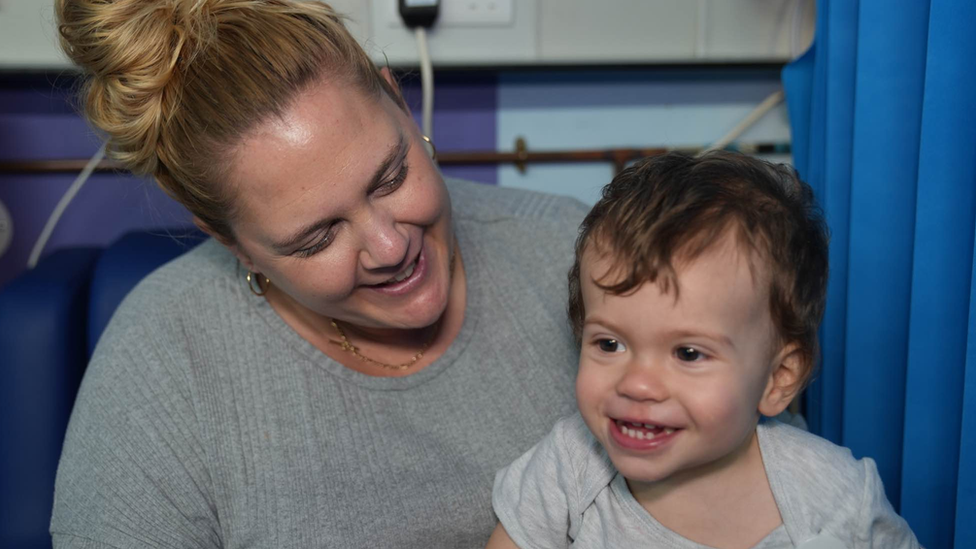
- Published25 May 2023
